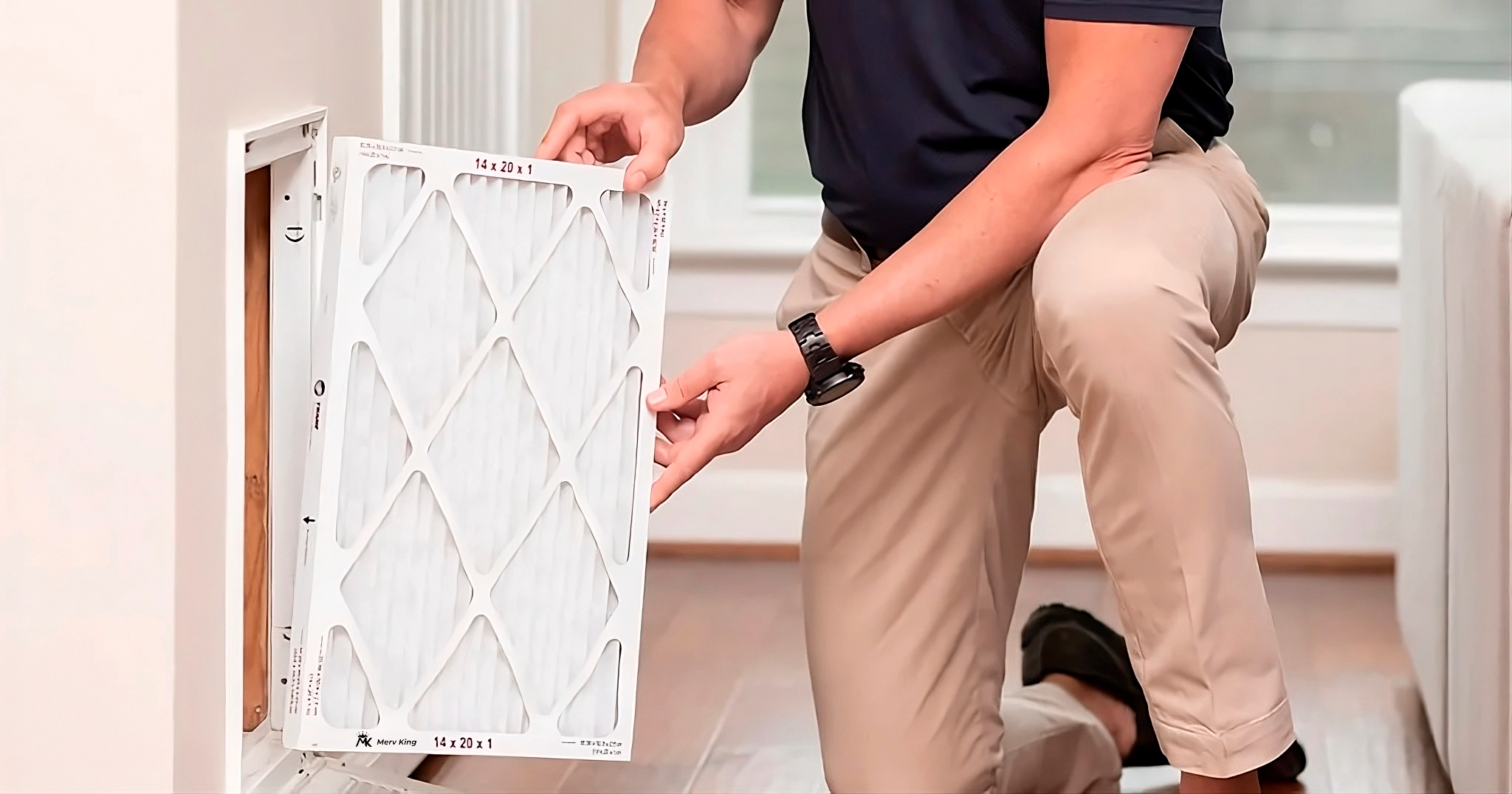Merv Rating Guide
MERV Ratings Explained: The Ultimate Guide to Air Filter Efficiency
Welcome to Merv King's comprehensive guide to MERV ratings. As air filtration experts, we're here to demystify MERV ratings and help you make informed decisions about your indoor air quality. Whether you're a homeowner, business owner, or HVAC professional, understanding MERV ratings is crucial for selecting the right air filter for your needs.
What is MERV? Understanding the Basics
MERV stands for Minimum Efficiency Reporting Value. Developed by the American Society of Heating, Refrigerating and Air Conditioning Engineers (ASHRAE), MERV is a standardized measurement scale designed to rate the effectiveness of air filters. The MERV scale ranges from 1 to 20, with higher numbers indicating better filtration efficiency.
Key Points About MERV Ratings:
- MERV ratings indicate a filter's ability to capture particles between 0.3 and 10 microns in size.
- Higher MERV ratings mean the filter can trap smaller particles.
- MERV ratings are determined through standardized testing procedures.
- The scale helps consumers compare different air filters across brands.
The MERV Rating Scale: A Detailed Breakdown
Let's dive into the MERV rating scale, breaking it down into ranges and explaining what each level means for air filtration:
MERV 1-4: Basic Filtration
- Particle size filtered: >10 microns
- Captures: Pollen, dust mites, carpet fibers, sanding dust
- Typical use: Residential window AC units, basic furnace protection
- Efficiency: Less than 20% capture of particles
MERV 5-8: Better Residential Filtration
- Particle size filtered: 3-10 microns
- Captures: Mold spores, dusting aids, cement dust
- Typical use: Better residential, commercial, and industrial settings
- Efficiency: 20-70% capture of particles
MERV 9-12: Superior Residential and Better Commercial Filtration
- Particle size filtered: 1-3 microns
- Captures: Legionella, humidifier dust, lead dust
- Typical use: Superior residential, better commercial and hospital laboratories
- Efficiency: 50-90% capture of particles
MERV 13-16: Superior Commercial Filtration
- Particle size filtered: 0.3-1 microns
- Captures: Bacteria, most smoke, sneeze nuclei
- Typical use: Superior commercial buildings, hospital inpatient care
- Efficiency: 90-95% capture of particles
MERV 17-20: HEPA Filtration
- Particle size filtered: <0.3 microns
- Captures: Viruses, carbon dust, sea salt, smoke
- Typical use: Electronics manufacturing, pharmaceutical processing
- Efficiency: >99.97% capture of particles
Comparing MERV Ratings: Which is Right for You?
Choosing the right MERV rating depends on your specific needs and HVAC system capabilities. Let's compare some of the most common MERV ratings to help you make an informed decision:
MERV 8 vs. MERV 11
|
Feature |
MERV 8 |
MERV 11 |
|
Particle size filtered |
3-10 microns |
1-3 microns |
|
Efficiency |
70-85% |
80-90% |
|
Best for |
Standard home filtration |
Better allergen control |
|
Captures |
Mold, dust mites, pollen |
Pet dander, fine dust, some bacteria |
MERV 11 vs. MERV 13
|
Feature |
MERV 11 |
MERV 13 |
|
Particle size filtered |
1-3 microns |
0.3-1 microns |
|
Efficiency |
80-90% |
90-95% |
|
Best for |
Better allergen control |
Superior residential filtration |
|
Captures |
Pet dander, fine dust, some bacteria |
Bacteria, most smoke particles |
Factors to Consider When Choosing MERV Ratings
While higher MERV ratings offer better filtration, they're not always the best choice for every situation. Consider these factors:
- HVAC System Compatibility
Higher MERV filters can restrict airflow, potentially straining your HVAC system. Check your system's specifications or consult with a professional to ensure compatibility.
- Energy Efficiency
Higher MERV filters may require more energy to push air through, potentially increasing energy costs. Balance filtration needs with energy efficiency.
- Health Concerns
If you have allergies, asthma, or other respiratory issues, you may benefit from higher MERV ratings (13+) to remove more allergens and irritants from the air.
- Environmental Factors
Consider your local environment. Urban areas with higher pollution levels may require higher MERV ratings compared to rural areas.
- Maintenance Requirements
Higher MERV filters typically need to be replaced more frequently. Factor in the cost and effort of regular replacements.
MERV Ratings and Indoor Air Quality
Understanding how MERV ratings impact indoor air quality can help you make the best choice for your home or business:
MERV 1-4: Basic Air Quality
Suitable for spaces with minimal air quality concerns. These filters provide basic protection against large particles but do little to improve overall air quality.
MERV 5-8: Improved Air Quality
Offer noticeable improvements in air quality, reducing common household dust and allergens. Ideal for most residential applications.
MERV 9-12: Superior Residential Air Quality
Provide excellent air quality for homes, especially those with pets or allergy sufferers. These filters can significantly reduce airborne irritants.
MERV 13-16: Hospital-Grade Air Quality
Deliver superior air quality, removing most airborne particles including bacteria and smoke. Ideal for those with severe allergies or respiratory conditions.
MERV 17-20: Clean Room Air Quality
Offer the highest level of air filtration, suitable for environments requiring near-sterile conditions. Rarely used in residential settings due to their high restriction on airflow.
MERV Ratings and Energy Efficiency
While higher MERV ratings offer better filtration, they can impact your HVAC system's energy efficiency:
- MERV 1-4: Minimal impact on energy efficiency
- MERV 5-8: Slight increase in energy consumption
- MERV 9-12: Moderate increase in energy consumption
- MERV 13-16: Significant increase in energy consumption
- MERV 17-20: Substantial increase in energy consumption, often requiring specialized HVAC systems
MervKing's Recommendations
Based on our extensive experience and customer feedback, here are MervKing's recommendations for different scenarios:
For Standard Homes:
We recommend MERV 8-11 filters. These provide a good balance of filtration efficiency and energy conservation for most households.
For Allergy Sufferers:
MERV 11-13 filters are ideal. They capture a high percentage of allergens without overly restricting airflow in most residential HVAC systems.
For Homes with Pets:
MERV 11-13 filters are excellent for capturing pet dander and hair, improving air quality for both pet owners and visitors.
For Urban Environments:
Consider MERV 13-16 filters to combat higher levels of outdoor pollution, smoke, and fine particles common in city environments.





